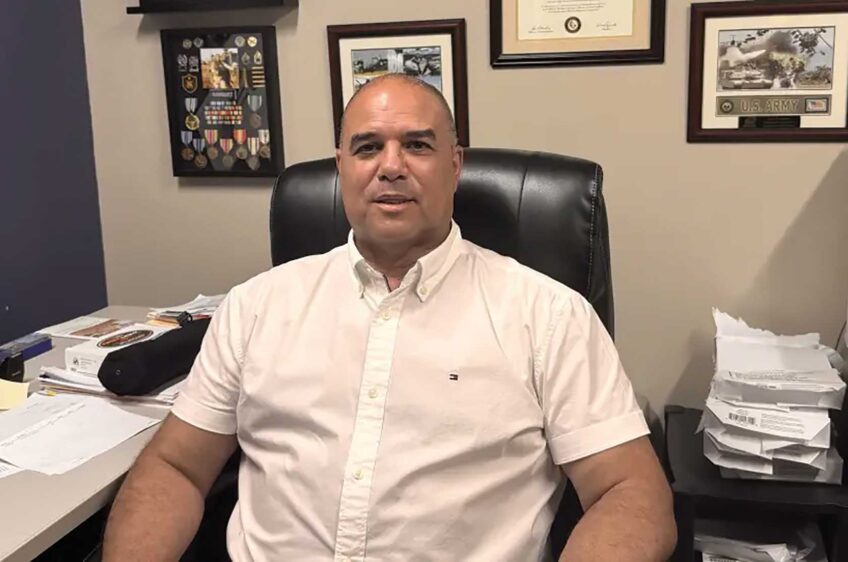
Fred Friendster had a small electrical contracting business. He operated as a “DBA,” without a corporation or LLC. He mostly did residential electrical work for his friends and neighbors when something broke in their homes or when they needed a new appliance installation. His buddy, Earl Eversmart, had a larger commercial electrical contracting business, often bidding and getting projects over $200,000. They had been friends since childhood and played cards together a couple times a month.
While talking one day with his local city councilor, Fred learned that a general contractor was seeking bids for a subcontract in connection with 12 units of elderly housing that were being built nearby. The contract price would be in the vicinity of $300,000. It was a short-term contract, but it required performance and payment bonds. Fred did not even know what those were. Still, Fred knew that the work was not too hard for him if he had some help. He figured he would need a few workers, which he did not have.
So, Fred went to his friend Earl to talk about it. Earl suggested that they create a joint venture and work on the project together. They called it F&E Co. Fred really didn’t know what a joint venture was, although he had heard of it. They would split everything 50-50. Earl would provide the bonds and some of his workers. Earl also had workers’ compensation insurance for his workers and general liability insurance, which Fred did not have. Fred would estimate the job, submit the bid, be the primary contact with the general contractor, attend all of the pre-bid and job meetings, oversee the work and make sure that everything was installed properly. Fred asked Earl about going to a lawyer to get something in writing, but Earl thought that was foolish for just one little project. So, they shook hands.
F&E bid the job, was the low bidder and got the contract. They signed the contract in the names of their companies, as a joint venture. Earl introduced Fred to his bonding agent, who was happy to provide bonds for the project. These bonds were promises by the bonding company to pay workers and suppliers and to finish the contract if anything went wrong. Because this was a joint venture, Fred had to sign the bonding company’s indemnity agreement for the bonds. This meant that if the bonding company was forced to pay out any money on this project, then both Fred and Earl were required to personally reimburse it. Fred was not concerned, because Earl had a lot more money than he did, and it was not a difficult or lengthy job. Fred also felt good about this entire project, as he now knew a bonding agent and it appeared that his business might be moving to a new level.
At first, everything went well. Fred went to all the contract planning meetings and got along with everyone. He also ordered all the materials that were needed for the job. When the bill arrived for the materials, he asked Earl to pay half. Earl told him that he would need a little time, because he was waiting for another customer to pay him. A few weeks later, Earl paid a quarter of the bill and said that the rest would be coming soon.
In the meantime, it was time to begin the electrical work on the project. Fred asked Earl to send a few of his employees, but Fred only sent one, who was not very good. The work was proceeding much slower than required by the project schedule. When Fred pressed Earl for one or two additional workers, Earl said he couldn’t spare anyone. Fred was being pressured by the general contractor to speed up the work, and Fred was working harder than he ever had worked. Then, one day, Earl’s worker slipped and fell down a staircase, injuring both himself and one of the carpenters on the job. When Fred told Earl about this, Earl blamed Fred and hung up the phone.
Fred did not know what to do. He told the general contractor that he couldn’t finish the job on time without the workers that Earl had promised. The general contractor contacted the bonding company. Fred was being harassed with collection calls from his materials supplier, who also contacted the bonding company. The two injured workers got lawyers, and the lawyers sent demand letters to Fred, which Fred passed along to Earl’s insurance companies. Fred tried calling Earl to tell him about all this, but Earl didn’t take his calls or call him back. Then, one day, Fred received letters in the mail telling him that Earl and Earl’s company were declaring bankruptcy.
Not knowing what to do next, Fred went to see his friend, Larry Lawyer. The news was not good.
First, Larry explained that without a written Joint Venture Agreement, Fred’s rights and obligations would be based on the general rules of partnership law, which were not going to be favorable. Even though Fred and Earl had made a 50-50 deal, Fred’s company was now 100% responsible to finish the job. Since Fred was a DBA, Fred, personally, was on the hook. He was personally responsible for payment of the full amount of his materials supplier. He also was personally responsible to complete the job, and if the bonding company came in, he would have to pay all of its costs, too. And because neither Fred nor the joint venture had worker’s compensation insurance or liability insurance, Fred could be personally liable for all monetary damages of the two injured workers. Fred’s only possible claim against Earl and Earl’s company would be in Bankruptcy Court, which could take years and produce nothing.
Fortunately, Larry was able to make a deal with the bonding company to finance the completion of the contract under Fred’s supervision. Larry also was able to convince the lawyers of the injured employees to accept small payments from Fred, personally, and to pursue their bigger claims against Earl’s worker’s compensation and general liability insurance companies.
In the end, Fred lost some money on the project, but he did not lose his shirt.
Fred learned an important lesson the hard way: While a joint venture can be a great way to expand your contracting capacity and opportunities, don’t ever get into a joint venture without a written Joint Venture Agreement that protects you from your potential risks and liabilities.
Jan Glassman is the founder of Daily General Counsel™, www.DailyGeneralCounsel.com, a Boston-based startup that provides very affordable legal services to small businesses and startups that otherwise could not afford a highly experienced business lawyer and would “go it alone.” DailyGC™ lawyers spend a full business day at their clients’ places of business, working directly with owners to resolve their most pressing sales, operations, employment and other legal/business problems. Prior to founding DailyGC™, Jan was General Counsel for a national management consulting firm that served small businesses throughout the United States. Follow Jan Glassman on Twitter @DailyGC






